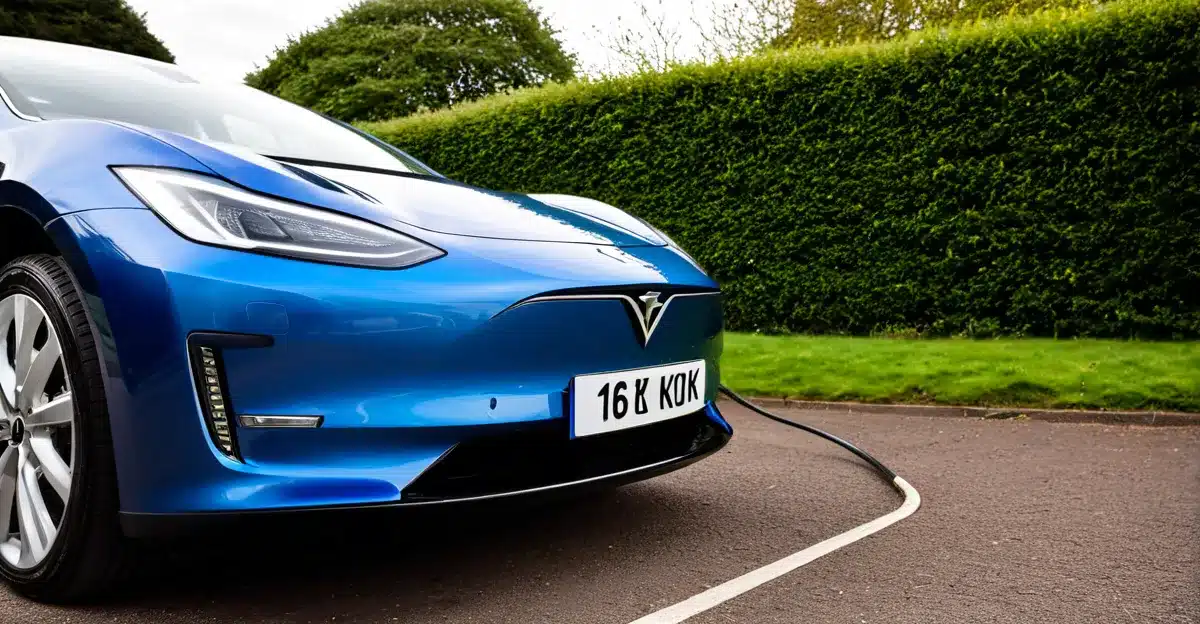Immediate Checks Before Making an Offer
Before committing to a used electric car inspection in the UK, conducting thorough initial checks is essential to avoid costly mistakes. Start by carefully assessing the car’s exterior and interior. Look for signs of damage such as uneven paintwork or poorly executed repairs that may indicate past accidents. Excessive wear on seats, controls, or floor mats can also reveal how the vehicle was maintained.
Next, verify the displayed mileage by cross-referencing the digital dashboard with service history documents. Discrepancies between these figures are often a major red flag and should raise concerns about potential odometer tampering.
Topic to read : Key factors to transform your aging car into a hybrid in the uk: a comprehensive guide
It’s also crucial to confirm the V5C logbook details to ensure the vehicle’s registration matches the seller’s information. During this check, investigate any outstanding finance agreements or theft status linked to the vehicle, as these issues can prevent you from legally owning the car after purchase.
Completing these pre-purchase steps thoroughly increases your confidence when making an offer and helps avoid surprises down the line. Paying attention to these inspections can significantly improve your buying experience and safeguard your investment in a used electric car.
In the same genre : Decoding the maze: the ultimate guide to car finance choices in the uk
Evaluating Battery Health and Charging History
Assessing electric car battery health UK starts with obtaining a detailed battery health report. This report can be accessed via manufacturer diagnostics or specialized battery inspection tools, providing key data on current battery capacity, voltage, and efficiency. Understanding the battery’s condition is essential for predicting its remaining lifespan and performance.
Reviewing the vehicle’s charging cycles reveals crucial insights into battery degradation. Each full charging cycle gradually reduces battery capacity; therefore, evaluating how often and where the vehicle was charged—whether through UK home chargers or public networks—can indicate the battery’s real-world wear. Frequent use of fast chargers, for example, may accelerate degradation, while regular slower charges can help preserve battery health.
Finally, cross-reference the battery warranty status with the report to know if coverage remains active, which can significantly reduce potential future replacement costs. Battery inspection paired with history analysis ensures buyers or owners can make informed decisions about electric car battery health UK, balancing performance expectations with financial considerations.
Reviewing Official Paperwork and Service History
Ensuring transparency and reliability in your EV purchase
When evaluating a used EV, thorough MOT checks are essential. These tests reveal any advisories or persistent faults that might not be immediately apparent, giving clear insight into the vehicle’s condition. Focus especially on items related to the battery and electrical systems, as these are critical components unique to electric vehicles.
Cross-referencing the service history against manufacturer schedules adds another layer of confidence. EVs have specific maintenance needs distinct from combustion engines, such as battery health checks and software updates. Validating that these were consistently performed highlights proper care and can prevent costly surprises.
Authenticity of paperwork is a cornerstone. Ensure all documentation, including recall notices and evidence of any software updates, is genuine and up to date. This protects against undisclosed repairs or lapses in necessary upgrades that could impair performance.
By carefully reviewing all these elements—MOT records, service history validation, and documentation—the buyer gains a comprehensive view of the vehicle’s background, enabling a well-informed and secure investment.
Understanding Common Model-Specific Issues
When buying an electric vehicle, understanding used EV common issues is crucial to making a smart investment. Every model has its quirks, so thorough buyer research into model-specific problems can save you time and money. Start by checking for any recalls or frequent faults reported for the particular make and year. These can highlight potential risks or reliability concerns you might face down the line.
Certain components tend to wear faster in some EVs. For instance, heavier EVs often see accelerated wear in tyres, brakes, and suspension parts. Identifying these vulnerable areas helps you anticipate maintenance and avoid unexpected costs.
UK owner reviews and online forums provide invaluable firsthand accounts. Owners frequently share issues not widely publicised, offering a deep dive into the model’s real-world weaknesses. Scanning these sources can reveal subtler model-specific problems that manufacturer data might miss.
By combining recall checks, maintenance hotspots, and community feedback, you build a comprehensive picture of what to expect. This strategy is essential because reliability concerns often boil down to how well you understand the nuances of the specific EV model you’re considering.
Legal Considerations for Used EV Buyers in the UK
When purchasing a used electric vehicle, understanding UK EV buyer laws is essential to protect your rights. The Consumer Rights Act 2015 ensures that used EVs must be as described, fit for purpose, and of satisfactory quality. Should a defect arise shortly after purchase, buyers have the right to request repairs, replacements, or even refunds. It’s prudent to verify that any warranty transfer is explicitly stated in the sales agreement, as many manufacturer or dealer warranties may not automatically transfer to subsequent owners. Confirming warranty details helps avoid unexpected repair costs.
Additionally, buyers need to conduct thorough liability checks to ensure the vehicle is not subject to outstanding finance or legal disputes. Tools like the HPI check are invaluable here.
Compliance with emission zone regulations in the UK must also be reviewed. Some cities enforce Clean Air Zones, where vehicles must meet certain standards or incur charges. Electric vehicles generally qualify for exemptions, but it’s important to confirm road tax implications and ensure the used EV complies with these standards. By paying attention to these legal factors, UK EV buyers can make informed and confident purchase decisions.
Final In-Person Inspections and Test Drive Essentials
Before purchasing a used EV, using a used EV inspection checklist during the hands-on inspection is crucial. Start by examining the charge cables and inlets to ensure they are intact and functional. Damage or excessive wear here can lead to costly repairs or unreliable charging. Next, test the infotainment systems thoroughly; glitches or malfunctions might indicate larger electrical issues.
Safety features are paramount. Confirm the functionality of airbags, electronic stability control, and collision warning systems by checking their status indicators. Tyres should be evaluated for tread depth and even wear, impacting both performance and safety. Brake tests are essential—not just the feel but also the regeneration performance, which can point to battery health and energy recovery efficiency.
During the test drive, pay attention to the drive quality. Is acceleration smooth? Are there any unusual noises or vibrations? Also, verify the accuracy of range estimation; large discrepancies could signal battery degradation or software problems. Keep an eye on warning lights—any persistent alerts need investigation before purchase. This careful, hands-on approach helps confirm the vehicle’s condition beyond paper reports.



